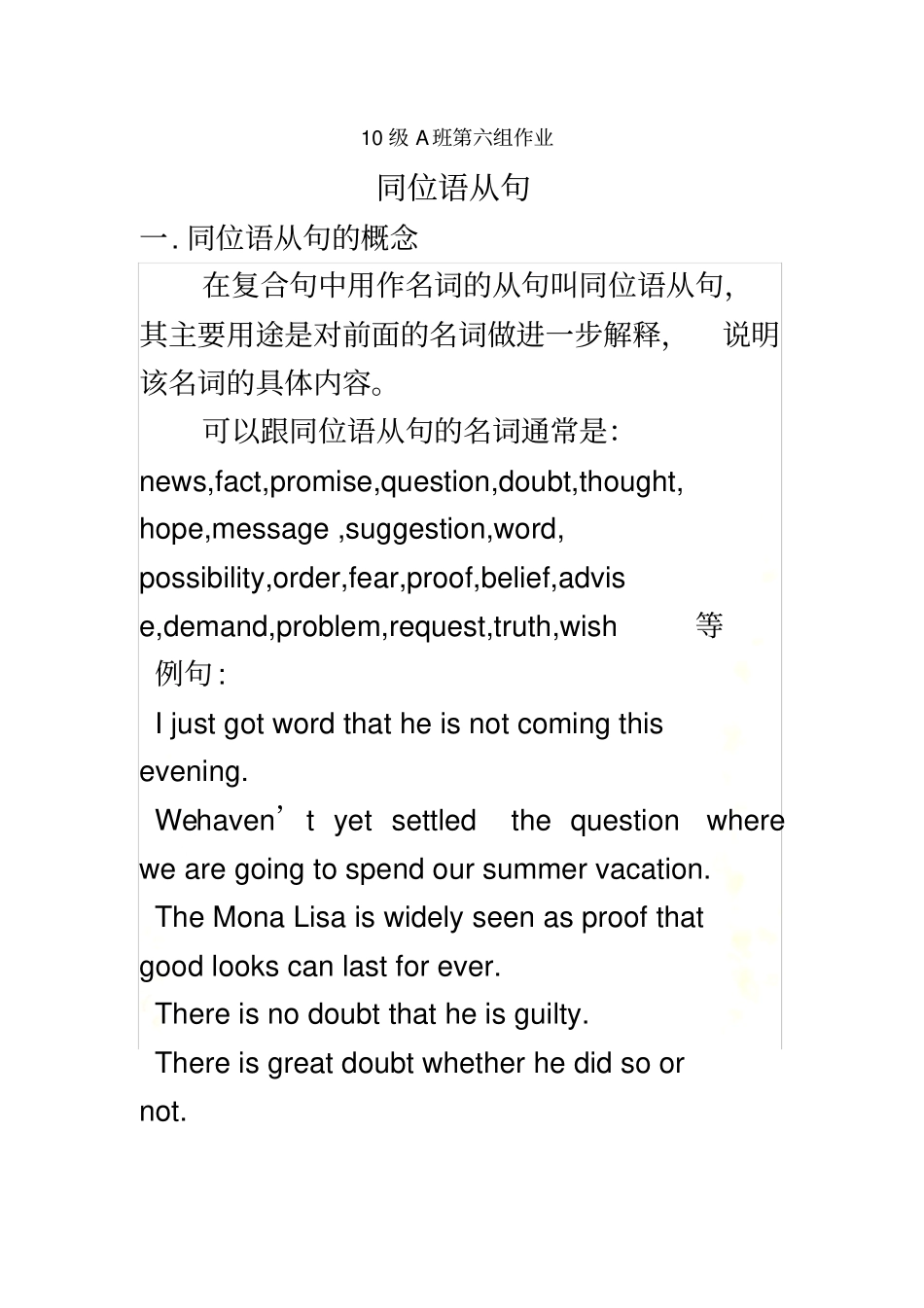同位语从句及同位语10 级 A班第六组作业同位语从句一. 同位语从句的概念在复合句中用作名词的从句叫同位语从句,其主要用途是对前面的名词做进一步解释,说明该名词的具体内容。可以跟同位语从句的名词通常是:news,fact,promise,question,doubt,thought,hope,message ,suggestion,word, possibility,order,fear,proof,belief,advise,demand,problem,request,truth,wish等例句 : I just got word that he is not coming this evening. We haven’t yet settled the question where we are going to spend our summer vacation. The Mona Lisa is widely seen as proof that good looks can last for ever. There is no doubt that he is guilty. There is great doubt whether he did so or not. 二.同位语从句的先行词同位语从句的先行词通常是抽象名词,常见的有: idea, situation thought, fact, evidence, belief, doubt, fear, hope, question, theory, news, order, ability等等。例句:How did the cheats explain the fact that the Emperor didn't feel the new clothes in him? 皇帝觉得身上并没有穿上新衣, 对这个问题骗子是怎样解释的 ? The news that his heath is failing made us sad. 他健康状况不佳的消息使我们很难过。I have no idea where they are spending their holidays. 我不知道他们在哪里度假。The question who should do the work requires consideration. 谁该干这项工作的问题需要考虑There is no doubt that he will come here again. 他会再来这里,这是毫无疑问的。He was tortured by the doubt whether he would accept their presents. 他被是否接受他们的礼物这个疑虑所折磨着。三.同位语从句的引导词1. 连词 that 引导同位语从句The idea that you can do this work well without thinking is quite wrong. 你认为不动脑筋就能做好这件工作的想法是完全错误的。(作 idea 的同位语)He gabbed his suitcase and gave the impression he was boarding the Tokyo plane. 他拿起了手提箱,给人的印象是他要登上飞往东京的飞机了。以下名词常用于以上句型:advice, announcement, argument, belief, clai...


